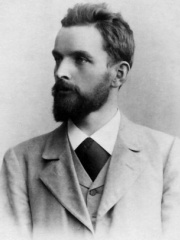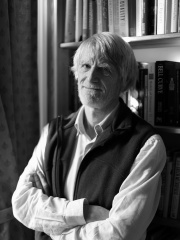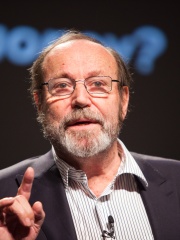



The Most Famous
ECONOMISTS from Belgium
This page contains a list of the greatest Belgian Economists. The pantheon dataset contains 414 Economists, 5 of which were born in Belgium. This makes Belgium the birth place of the 16th most number of Economists behind Netherlands, and Hungary.
Top 5
The following people are considered by Pantheon to be the most legendary Belgian Economists of all time. This list of famous Belgian Economists is sorted by HPI (Historical Popularity Index), a metric that aggregates information on a biography's online popularity.

1. Silvio Gesell (1862 - 1930)
With an HPI of 65.23, Silvio Gesell is the most famous Belgian Economist. His biography has been translated into 30 different languages on wikipedia.
Johann Silvio Gesell (German: [ɡəˈzɛl]; 17 March 1862 – 11 March 1930) was a German-Argentine economist, entrepreneur, and social reformer. He was the founder of Freiwirtschaft (German for "free economy"), an economic model for market socialism. In 1900, he founded the magazine Money and Land Reform (German: Die Geld- und Bodenreform), but it soon closed for financial reasons. During his time in Oranienburg, Gesell started the magazine Der Physiokrat together with George Heinrich Blumenthal. In 1914, it closed due to censorship. In 1916, he published his most famous work, The Natural Economic Order. Gesell is mainly known for his monetary theory. In particular, he noted the asymmetry between the durability and hoardability of money and the finite shelf life of goods and services which depreciate due to entropy and the passage of time. He believed that people who are able to save or hoard money have an unfair economic advantage over people who are dependent on producing and selling decayable goods and services for their livelihoods. Gesell theorized that the unfair premium enjoyed by hoarders expressed itself in interest rates and spawned recessions, an argument that later influenced John Maynard Keynes's theory of liquidity preference. To resolve this problem, Gesell proposed a new form of money that depreciates over time (German: Freigeld). Gesell also supported free land (German: Freiland) and free trade (German: Freihandel). However, he disagreed with Henry George's contention that land value taxes could solve the problem of land rent, as Gesell believed that such taxes could be passed onto the tenants. Instead, Gesell proposed nationalizing all land from current landowners, with the purchases financed by land bonds that would be paid over 20 years from revenues raised by leasing the purchased land through competitive bidding. This would achieve many of the intended effects of Georgism, but with compensation for previous landowners, and with no need to repeatedly reappraise land values. Gesell also criticized Henry George for believing that Georgism would eliminate interest, economic crises, and unemployment. At the suggestion of Erich Müchsam and Gustav Landauer, Gesell served as the finance minister of the Bavarian Soviet Republic for eight days in 1919. After the republic's violent end, Gesell was detained for several months on a charge of treason but was acquitted by a Munich court after he gave a speech in his own defense. In the mid-to-late 1900s, Gesell's ideas were published and discussed only in the limited circle of his supporters. Since the beginning of the 2000s, Gesell has received increasing attention among the general public. The reasons for this include discussions about local currencies and cryptocurrencies, the zero interest-rate policy of some central banks, and the desire of some economists for negative interest rates.

2. Gustave de Molinari (1819 - 1912)
With an HPI of 61.43, Gustave de Molinari is the 2nd most famous Belgian Economist. His biography has been translated into 20 different languages.
Gustave de Molinari (French: [də mɔlinari]; 3 March 1819 – 28 January 1912) was a Belgian political economist and French Liberal School theorist associated with French laissez-faire economists such as Frédéric Bastiat and Hippolyte Castille.

3. Philippe Van Parijs (b. 1951)
With an HPI of 56.20, Philippe Van Parijs is the 3rd most famous Belgian Economist. His biography has been translated into 20 different languages.
Philippe Van Parijs (French: [filip vɑ̃ paʁɛjs]; born May 23, 1951) is a Belgian political philosopher and political economist, best known as a proponent and main defender of the concept of an unconditional basic income and for the first systematic treatment of linguistic justice. In 2020, he was listed by Prospect as the eighth-greatest thinker for the COVID-19 era, with the magazine writing, "Today’s young UBI enthusiasts draw on the books and tap the networks of this Belgian polymath, who championed it before it was fashionable. For decades, he has warned that our proclaimed freedoms to start businesses or raise children count for nothing without the real freedom that comes with a basic income".

4. Bernard Lietaer (1942 - 2019)
With an HPI of 54.28, Bernard Lietaer is the 4th most famous Belgian Economist. His biography has been translated into 16 different languages.
Bernard Lietaer (7 February 1942 – 4 February 2019) was a Belgian civil engineer, economist, author, and educator. He studied monetary systems and promoted the idea that communities can benefit from creating their own local or complementary currency, which circulate parallel with national currencies.

5. Gunter Pauli (b. 1956)
With an HPI of 53.46, Gunter Pauli is the 5th most famous Belgian Economist. His biography has been translated into 17 different languages.
Gunter Pauli is an entrepreneur, economist, and author born in 1956 in Antwerp (Belgium). He is best known for his main work, The Blue Economy. He has lived on 4 continents, is fluent in 7 languages, is a resident of Japan since 1994 and spends most of his time in South Africa.
People
Pantheon has 5 people classified as Belgian economists born between 1819 and 1956. Of these 5, 2 (40.00%) of them are still alive today. The most famous living Belgian economists include Philippe Van Parijs, and Gunter Pauli. The most famous deceased Belgian economists include Silvio Gesell, Gustave de Molinari, and Bernard Lietaer.
Living Belgian Economists
Go to all RankingsDeceased Belgian Economists
Go to all RankingsSilvio Gesell
1862 - 1930
HPI: 65.23
Gustave de Molinari
1819 - 1912
HPI: 61.43
Bernard Lietaer
1942 - 2019
HPI: 54.28
Overlapping Lives
Which Economists were alive at the same time? This visualization shows the lifespans of the 3 most globally memorable Economists since 1700.

